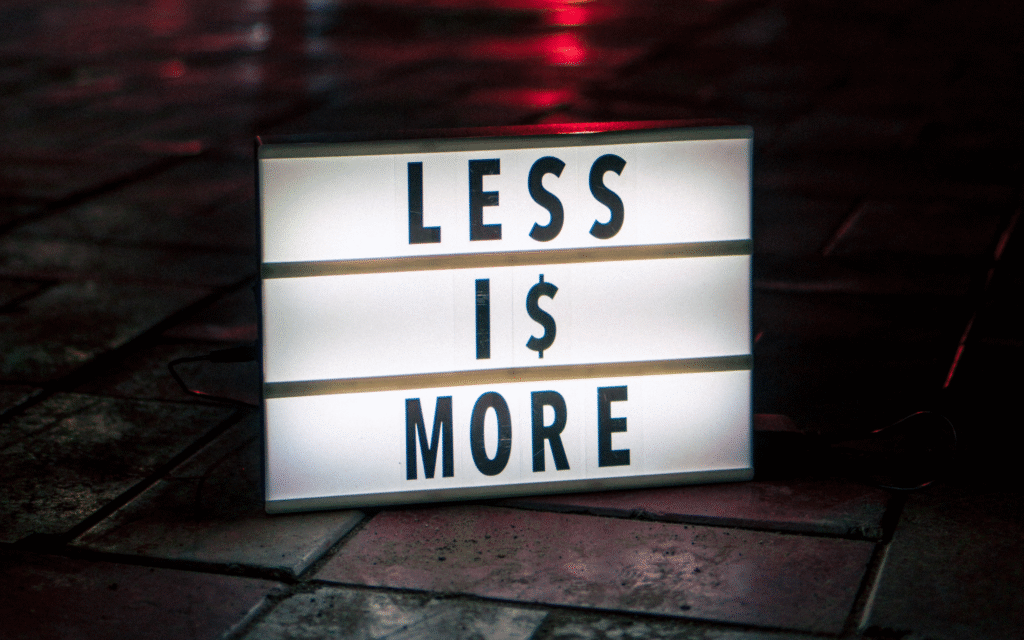Every Day Counts
There’s a quiet kind of power hidden in the ordinary days—the ones that don’t feel special, the ones where nothing big happens, the ones where you show up even when you don’t feel like it. These days rarely get attention. They don’t make it into highlight reels or journal entries. But they are the days that shape your habits, your mindset, and ultimately your life. We tend to look for change in dramatic moments. A sudden inspiration. A big breakthrough. A surge of motivation that transforms everything overnight. But real growth almost never works like that. It unfolds in the small choices you repeat—not once, not occasionally, but consistently, even when they seem too simple or too slow to matter. That’s the truth behind the idea that every day counts. Because habits aren’t built by intensity. They’re built by repetition. And each repetition—no matter how small—strengthens the identity you’re creating within yourself. The Days That Don’t Feel Important Matter the Most People often underestimate habits because individual actions feel insignificant on their own. Reading one page. Drinking one glass of water. Taking a five-minute walk. Going to bed on time just once. Your mind says, “What difference will this make?” But habits work like compounding interest. The effect isn’t always visible at the beginning. You don’t feel smarter after reading one page. You don’t feel healthier after one glass of water. You don’t feel stronger after one workout. But habits aren’t about the result of a single action—they’re about accumulation. One day blends into the next, and slowly, almost invisibly, your life shifts. The most meaningful changes happen beneath the surface before they ever become visible. By the time you notice the change, the transformation has already been happening for weeks or months. That’s why everyday choices matter. They build momentum even when nothing feels different yet. Consistency Is the Bridge Between Who You Are and Who You’re Becoming We often think motivation shapes our habits. But motivation is unreliable. It comes and goes, and it usually disappears when you need it most. Consistency, however, doesn’t rely on emotion. It relies on commitment. It comes from deciding that the person you want to become deserves your effort even on days when you’re tired, distracted, or uninspired. And there’s something grounding about that. When you show up on the ordinary days, you send a quiet message to yourself: “I can trust myself.” That trust is one of the most powerful things you can build. Without it, habits crumble easily. With it, you can create almost anything. Consistency doesn’t have to mean perfection. Missing a day doesn’t ruin the work. What matters is that you return to the habit again and again, choosing progress over pressure. It’s the willingness to continue that builds the bridge between your current self and your future self. Why Small Actions Carry Big Energy There’s a reason small habits work better than big, dramatic changes: the human brain loves simplicity. Starting big feels exciting at first, but it quickly becomes overwhelming. You can’t build long-term habits through force or pressure. Small habits are doable. Repeatable. Sustainable. They don’t drain your mental energy—they build it. And each small action becomes a quiet vote for the person you want to be. Here’s the magic: The action itself is small, but the identity it supports is huge. When you meditate for one minute, you’re embodying the identity of someone who values calm. When you read one page, you’re embodying the identity of someone who learns. When you organize one drawer, you’re embodying the identity of someone who takes care of their environment. Your identity is shaped by your actions, not your intentions. And every small habit is a seed you plant in the direction of who you’re becoming. Momentum Doesn’t Start Big—It Starts With One Decision If you’ve ever struggled to start a habit, you know how hard the first step can feel. Your mind imagines the full journey: the time it will take, the effort, the discipline, the energy. Suddenly the starting line feels heavy. One small action can shift your entire day. It can shift your mood, your energy, your mindset. When you take one step, you make the next step easier. This is why showing up every day matters. Not because you need to make massive progress, but because you keep momentum alive. Every day that you show up, you keep the door open. You keep your identity aligned with your intention. You make it easier to continue tomorrow. Momentum is built quietly, one decision at a time. The Power of Showing Up Even When You Don’t Feel Like It There will be days when everything feels harder. Days when you feel tired, overwhelmed, or disconnected. Days when you question your progress. Days when your mind whispers, “Skip it. It doesn’t matter.” These days are important. Not because the habit will be perfect. Not because you’ll make progress. But because showing up on the hard days reinforces something vital:Your habits are not optional. They’re part of you. Even the smallest effort counts. Reading a paragraph instead of a chapter. Stretching for two minutes instead of working out for thirty. Writing two sentences instead of one full page. When life becomes heavy, habits may need to shrink—but they should not disappear. This is how you stay connected to your goals without burning out. This is how you build resilience. This is how you create lasting change. The Identity Shift Hidden in Daily Habits Habits are not just routines—they are reflections of who you believe you are. Every time you repeat a habit, you reinforce a message about yourself. “I am someone who takes care of my body.”“I am someone who values peace.”“I am someone who keeps promises to myself.”“I am someone who grows.” Identity-driven habits are powerful because they last. They aren’t built around pressure. They’re built around alignment—choosing actions that reflect your deeper values. And the identity shift happens quietly. One day you notice you’re acting










